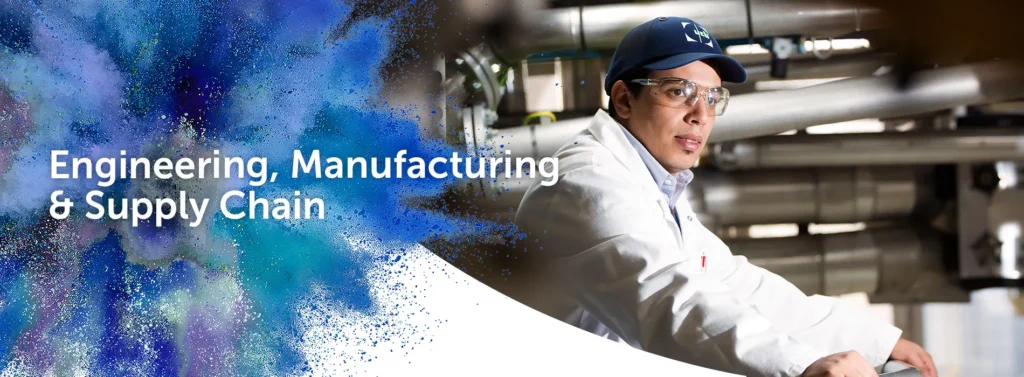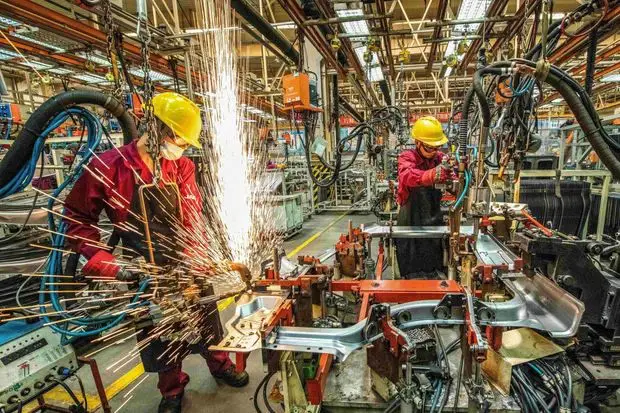Manufacturing & Engineering Technical Jobs – Kat Technical
Exploring the Diverse and Critical Roles in Manufacturing & Engineering Technical Jobs

Manufacturing & Engineering Technical Jobs
The manufacturing and engineering sectors are critical to the global economy, driving innovation, productivity, and growth. These fields encompass a wide range of technical jobs that require specialized skills and knowledge. From designing cutting-edge machinery to overseeing complex production processes, professionals in these sectors play a vital role in shaping the future. In this article, we delve into the various types of manufacturing and engineering technical jobs, their importance, required skills, and career prospects.

Types of Manufacturing Technical Jobs
Production Engineers
Production engineers are responsible for planning, coordinating, and controlling manufacturing processes. They ensure that production is cost-effective and efficient while maintaining the required quality standards. Key responsibilities include:
Quality Control Technicians
Quality control technicians play a crucial role in maintaining the standards of manufactured products. They perform tests and inspections to ensure that products meet specified criteria.
Their duties involve:
Conducting quality inspections and tests
Documenting and reporting defects
Implementing corrective actions
Ensuring compliance with industry standards
Collaborating with production teams to improve quality
CNC Machinists
Computer Numerical Control (CNC) machinists operate CNC machines that cut, shape, and finish materials with precision. These professionals must have a deep understanding of machinery and programming. Their tasks include:
Reading and interpreting blueprints
Setting up and operating CNC machines
Performing regular machine maintenance
Ensuring precision and accuracy in machining
Troubleshooting machine issues
Maintenance Technicians
Maintenance technicians are essential in keeping manufacturing equipment and systems running smoothly. They perform routine maintenance and repairs to minimize downtime and ensure operational efficiency. Their responsibilities include:
Conducting regular inspections and maintenance
Diagnosing and repairing equipment malfunctions
Implementing preventive maintenance programs
Maintaining maintenance records
Collaborating with other teams to improve equipment reliability
Types of Engineering Technical Jobs
Mechanical Engineers
Mechanical engineers design, develop, and test mechanical devices and systems. They work in various industries, including automotive, aerospace, and manufacturing. Key responsibilities include:
Designing mechanical components and systems
Conducting simulations and tests
Analyzing data and improving designs
Collaborating with other engineers and professionals
Ensuring compliance with safety and regulatory standards

Electrical Engineers
Electrical engineers focus on designing, developing, and maintaining electrical systems and components. Their work is crucial in industries such as power generation, telecommunications, and electronics. Their tasks involve:
Designing electrical circuits and systems
Conducting feasibility studies and simulations
Developing and testing prototypes
Ensuring systems comply with safety standards
Troubleshooting and resolving electrical issues
Civil Engineers
Civil engineers are responsible for designing, constructing, and maintaining infrastructure projects like roads, bridges, and buildings. They ensure that these structures are safe, sustainable, and efficient. Their duties include:
Designing and planning infrastructure projects
Conducting site investigations and feasibility studies
Overseeing construction activities
Ensuring compliance with regulations and standards
Managing project budgets and timelines
Industrial Engineers
Industrial engineers optimize complex systems and processes to improve efficiency and productivity. They work across various sectors, including manufacturing, healthcare, and logistics. Their responsibilities include:
Analyzing production processes and workflows
Implementing process improvements
Designing efficient systems and layouts
Managing resources and reducing waste
Collaborating with cross-functional teams
Importance of Technical Jobs in Manufacturing & Engineering
Technical jobs in manufacturing and engineering are the backbone of innovation and development. They ensure the creation of high-quality products, the optimization of processes, and the advancement of technology. These roles are crucial for several reasons:
Innovation: Technical professionals drive innovation by developing new technologies and improving existing ones.
Quality and Safety: They ensure that products meet quality standards and comply with safety regulations, protecting consumers and workers.
Efficiency: By optimizing processes and systems, technical jobs contribute to increased productivity and reduced costs.
Economic Growth: These roles support economic growth by creating high-value products and services, contributing to job creation and market expansion.
Required Skills and Qualifications
Technical Skills
Technical jobs in manufacturing and engineering require a strong foundation in specific technical skills. These may include:
Proficiency in CAD software for design engineers
Knowledge of machining and programming for CNC machinists
Understanding of electrical systems for electrical engineers
Familiarity with quality control methods for quality technicians
Analytical Skills
Professionals in these fields must possess strong analytical skills to solve complex problems, interpret data, and make informed decisions. This includes:
Critical thinking and problem-solving abilities
Data analysis and interpretation skills
Attention to detail and precision
Communication Skills
Effective communication is essential for collaborating with teams, presenting findings, and reporting issues. Key communication skills include:
Verbal and written communication
Team collaboration and interpersonal skills
Technical writing and documentation
Adaptability and Continuous Learning
The manufacturing and engineering sectors are constantly evolving, requiring professionals to stay updated with the latest advancements. Important attributes include:
Willingness to learn and adapt to new technologies
Continuous professional development
Flexibility to handle changing job requirements
Career Prospects and Opportunities
Growth Potential
Technical jobs in manufacturing and engineering offer significant growth potential. As industries expand and technology advances, the demand for skilled professionals increases. Opportunities for career advancement include:
Moving into senior technical roles
Transitioning into management positions
Specializing in niche areas of expertise
Pursuing further education and certifications
Diverse Career Paths
The diversity of roles within manufacturing and engineering provides numerous career paths. Professionals can work in various industries, including automotive, aerospace, energy, and healthcare. This diversity allows for career flexibility and the ability to explore different fields.
Competitive Salaries
Technical jobs in these sectors often offer competitive salaries, reflecting the specialized skills and knowledge required. Compensation varies based on factors such as experience, education, and industry, but generally, these roles provide lucrative career opportunities.
Job Security
Given the critical role of manufacturing and engineering in the economy, technical jobs in these fields offer a high level of job security. The continuous need for innovation, production, and maintenance ensures a stable demand for skilled professionals.
Conclusion
Manufacturing and engineering technical jobs are essential to driving innovation, ensuring quality, and optimizing processes across various industries. With diverse roles ranging from production engineers to electrical engineers, these professions offer significant career opportunities, competitive salaries, and job security. By developing the necessary skills and staying abreast of industry advancements, professionals in these fields can enjoy a rewarding and impactful career.



